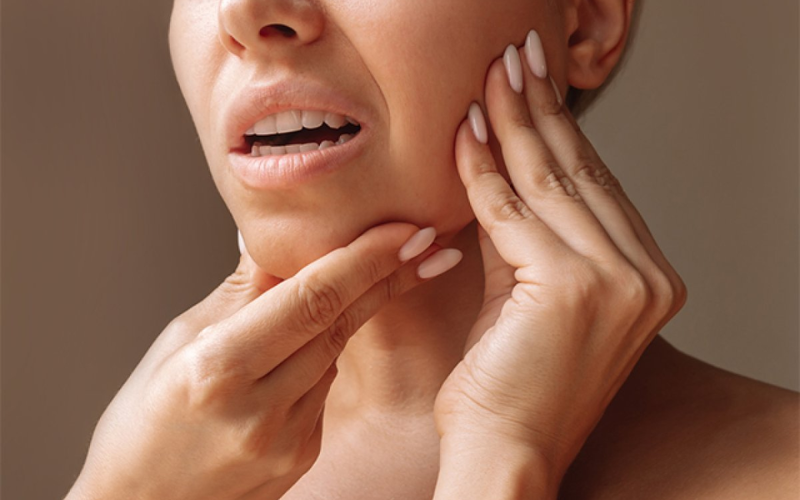
March 25, 2025, By Virginia TMJ Facial Pain and Sleep Center
Have you ever noticed that after a busy day, your jaw feels tight or even locks up? Then, you’re not by yourself! Stress have an impact on your jaw as much as the rest of your body. Jaw strain (which is caused by anxiety) can be the reason if you’ve ever woken up with facial pain or found it difficult to open your mouth completely, because sometimes anxiety locks your jaw. Here’s how stress and jaw locking are related, as well as warning signs and solutions.
How Jaw Locking and Stress Are Related To Each Other?
Your body naturally tenses up when you’re stressed or anxious, and you frequently don’t even realize it. Your jaw muscles are part of this, and they can result in:
- Bruxism, or jaw clenching, is the unconscious grinding of teeth, usually as you sleep.
- TMJ Dysfunction or temporomandibular joint problems can come from stress or get worse by it.
- If your muscles are tensed for an extended period of time, then it can be hard to move your jaw freely.
Signs That Anxiety Is Affecting Your Jaw
Are you unsure if your jaw problems are a result of stress? Here are some typical indicators to look out for:
- Tightness or soreness in the jaw, often after stressful events.
- When you open or close your mouth, you may hear clicking or popping sounds.
- Ear or headache pain is frequently linked with tensed jaw muscles.
- Having trouble opening your mouth fully—as if your jaw were ‘stuck’.
- Too much grinding or clenching teeth might lead to tooth wear or sensitivity.
It’s time to deal with the stress causing these symptoms if they seem familiar, with jaw locking treatment in Glen Allen. It can restore proper jaw function.
How To Avoid Stress-Related Jaw Locking?
Long-term harm and discomfort can be avoided by controlling your stress and calming your jaw. Try these easy yet powerful methods:
1. Jaw Relaxation Exercises
- Open your mouth wide, then close it gently.
- Massage your jaw in circular motions.
2. Reduce Stress
- Practice deep breathing or meditation.
- Stay active—exercise lowers anxiety.
3. Stop Clenching & Grinding
- Wear a mouthguard at night.
- Stay mindful and relax your jaw.
4. Heat or Cold Therapy
- Use a warm compress for stiffness.
- Apply an ice pack for swelling.
5. Improve Your Sleep & Posture
- Avoid sleeping on your stomach, which can strain your jaw.
- Keep your posture upright to prevent unnecessary jaw pressure.
Up to 70% of people who grind their teeth do so because they are stressed or anxious, according to the American Academy of Orofacial Pain.
Don’t Let Stress Lock You Up!
Stress is unavoidable, but letting it control your jaw isn’t! Understanding how anxiety locks your jaw and taking proactive steps to relax it can make all the difference. By practicing jaw relaxation, managing stress, and seeking professional help if needed, you can prevent the discomfort.
Is your jaw feeling tight right now? If so, take a deep breath, unclench your teeth, and gradually let go of the tension. It is always recommended to reach out to our dentist right away if it gets more serious.
